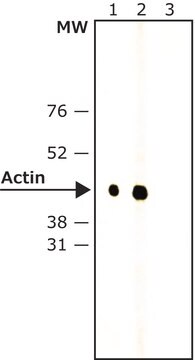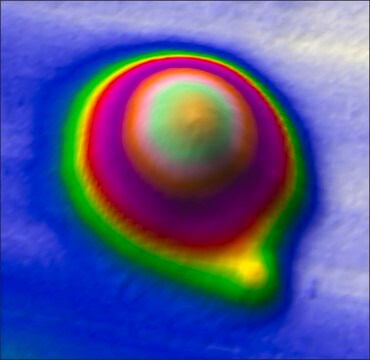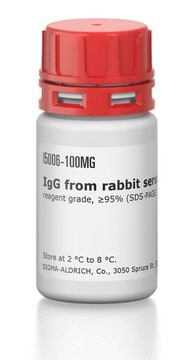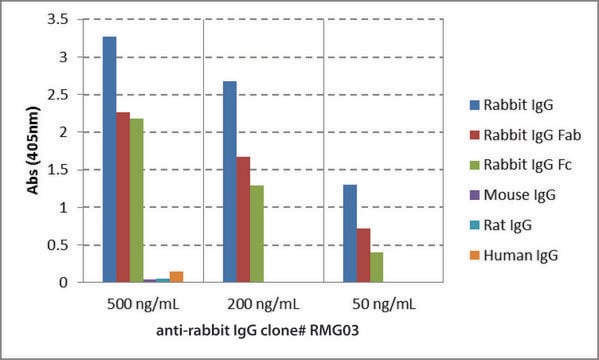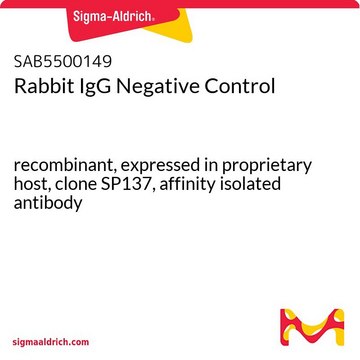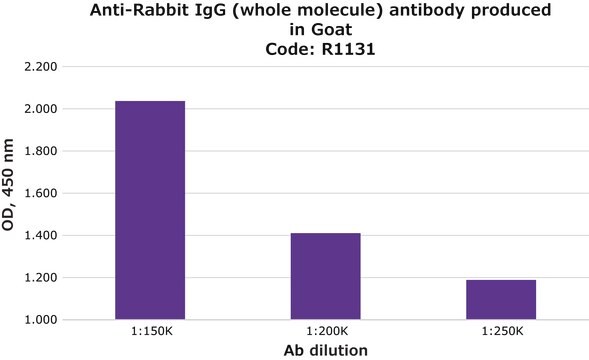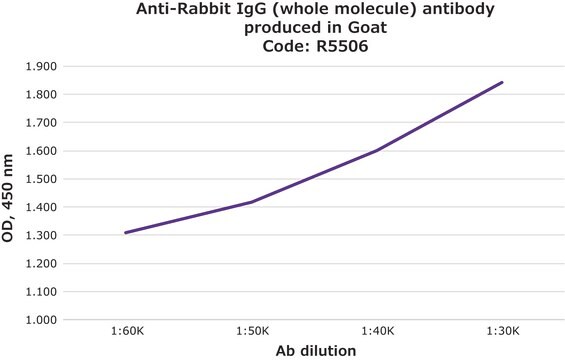R2655
Monoclonal Anti-Rabbit IgG, Native antibody produced in mouse
clone RabT-50, purified from hybridoma cell culture
About This Item
Produits recommandés
Source biologique
mouse
Niveau de qualité
Conjugué
unconjugated
Forme d'anticorps
purified immunoglobulin
Type de produit anticorps
secondary antibodies
Clone
RabT-50, monoclonal
Forme
buffered aqueous solution
Espèces réactives
rabbit
Ne doit pas réagir avec
human, rat, chicken, cat, bovine, monkey, goat, pig, horse
Concentration
~1 mg/mL
Technique(s)
immunocytochemistry: suitable
indirect ELISA: suitable
western blot: 1-2 μg/mL using 10 ng of non-reduced rabbit IgG (Cat. No. I5006) per lane
Isotype
IgG1
Conditions d'expédition
dry ice
Température de stockage
−20°C
Modification post-traductionnelle de la cible
unmodified
Description générale
Spécificité
Immunogène
Application
- immunoblotting
- immunocytochemistry
- immunohistochemistry
- enzyme-linked immunosorbent assay (ELISA)
Actions biochimiques/physiologiques
Forme physique
Stockage et stabilité
Clause de non-responsabilité
Vous ne trouvez pas le bon produit ?
Essayez notre Outil de sélection de produits.
Produit(s) apparenté(s)
Code de la classe de stockage
10 - Combustible liquids
Point d'éclair (°F)
Not applicable
Point d'éclair (°C)
Not applicable
Équipement de protection individuelle
Eyeshields, Faceshields, Gloves, type ABEK (EN14387) respirator filter
Faites votre choix parmi les versions les plus récentes :
Déjà en possession de ce produit ?
Retrouvez la documentation relative aux produits que vous avez récemment achetés dans la Bibliothèque de documents.
Les clients ont également consulté
Notre équipe de scientifiques dispose d'une expérience dans tous les secteurs de la recherche, notamment en sciences de la vie, science des matériaux, synthèse chimique, chromatographie, analyse et dans de nombreux autres domaines..
Contacter notre Service technique